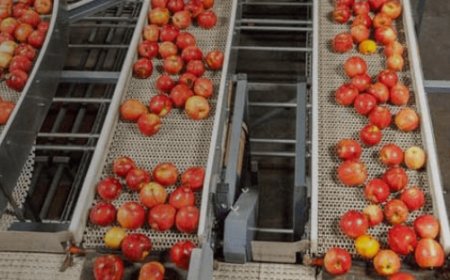Grease Trap Cleaning Time Guide When, Why, and How to Keep Your Kitchen Flowing Smoothly
Don’t you just hate it when you get a reminder call from your waste provider that its Grease Trap cleaning time.

If you own or manage a café, restaurant, or commercial kitchen, you’ve probably heard that dreaded phrase — “It’s Grease Trap Cleaning Time again!” It’s not the most glamorous task, but grease trap cleaning is absolutely essential to keeping your kitchen running smoothly, preventing foul odours, and staying compliant with local regulations.
In this article, we’ll break down how often you should schedule grease trap cleaning, why it’s so important, and what happens if you skip it. Whether you’re new to managing a kitchen or just want to make the process easier, this guide has you covered.
What Exactly Is a Grease Trap?
A grease trap (also known as a grease interceptor) is a plumbing device designed to capture fats, oils, and grease (often called FOG) before they enter your wastewater system. Over time, these substances can solidify and block pipes, leading to backups and costly repairs.
When your grease trap fills up, it’s time for professional grease trap cleaning. The goal is to remove the accumulated grease and sludge so that wastewater can continue flowing freely.
How Often Should You Schedule Grease Trap Cleaning Time?
There’s no one-size-fits-all answer to grease trap cleaning time, but most businesses benefit from cleaning every one to three months, depending on the trap’s size and kitchen activity level.
Here are some general guidelines:
-
High-volume kitchens (restaurants, hotels, food courts): Every 4–6 weeks
-
Medium-use facilities (cafés, bakeries): Every 2–3 months
-
Low-use establishments (small offices, occasional use): Every 4–6 months
The key is to monitor your grease trap regularly. If you notice slow drainage, unpleasant smells, or visible grease buildup, it’s probably grease trap cleaning time again.
Why Regular Grease Trap Cleaning Matters
Skipping or delaying grease trap cleaning might save time today, but it often leads to expensive headaches later. Here’s why routine maintenance is crucial:
1. Avoid Costly Plumbing Problems
Grease and oils harden over time, clogging your pipes. Once that happens, you’re looking at blocked drains and emergency plumbing bills that could easily be avoided.
2. Stay Health & Safety Compliant
Local councils and water authorities often have strict regulations on grease management. Regular grease trap cleaning keeps you compliant and helps you avoid fines or temporary closures.
3. Prevent Odours and Backups
Nothing turns customers away faster than the smell of rancid grease. Proper cleaning removes sludge before it begins to decompose and release foul odours into your kitchen or dining area.
4. Protect the Environment
Grease that enters the sewer system can cause serious environmental damage. Routine maintenance ensures waste is disposed of properly and sustainably.
Signs It’s Time for Grease Trap Cleaning
Not sure when it’s time to book your next service? Look out for these red flags:
-
Strong, unpleasant smells near drains
-
Slow-draining sinks or floor drains
-
Visible grease floating in the trap
-
Water backing up into sinks
-
More frequent plumbing issues
When you start noticing any of these, don’t wait — it’s definitely grease trap cleaning time.
What to Expect During Professional Grease Trap Cleaning
A qualified technician will:
-
Inspect the trap and measure grease levels.
-
Pump out all fats, oils, and solids.
-
Clean the interior walls to prevent buildup.
-
Inspect for damage or leaks.
-
Dispose of waste according to environmental guidelines.
A thorough cleaning ensures your trap functions efficiently and helps extend its lifespan.
How to Make Grease Trap Cleaning Easier
Here are a few practical tips to make your next grease trap cleaning time less stressful:
-
Train kitchen staff to scrape food waste before washing dishes.
-
Use sink strainers to catch solids.
-
Avoid pouring oils or grease directly down the drain.
-
Keep a maintenance log with cleaning dates.
-
Partner with a reliable grease trap cleaning company for scheduled service reminders.
Conclusion
While no one looks forward to grease trap cleaning time, it’s an essential part of running a clean, safe, and compliant commercial kitchen. Regular maintenance saves you money, protects your reputation, and keeps your plumbing system in top shape.
If you’re unsure when your trap was last serviced, don’t wait until it’s too late — schedule your next grease trap cleaning today.





























